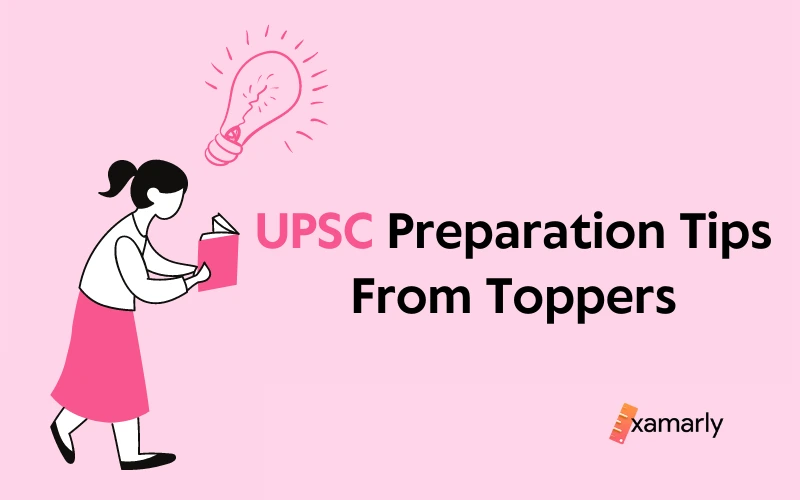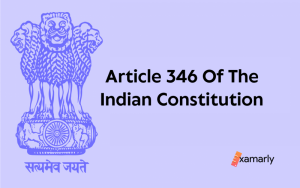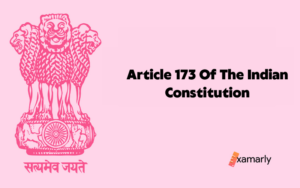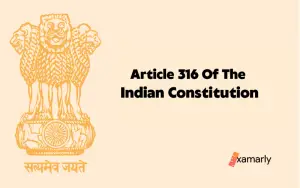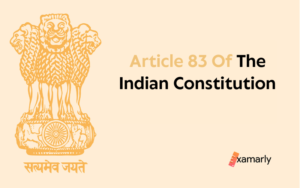Are you looking for effective UPSC preparation tips from toppers? UPSC aspirants seek UPSC toppers’ tips to head-start their preparation in the right direction. Preparing for Civil Services Exam is a long journey filled with obstacles from time to time.
There is no quick fix for making your effort in the UPSC Civil Service Exam count.
This blog will answer your questions and direct you to some of the most useful UPSC preparation tips from toppers.
These individuals have not only cracked the test but have also achieved remarkable scores, ranking amongst the top contenders.
By sharing their wisdom and experience, they aim to guide and motivate aspirants who are currently preparing for the exam and provide a roadmap to success. Get ready to be inspired and learn the secrets of UPSC Preparation tips from toppers.
- Think: What Creates the difference in UPSC Exam Paper
- 12 Must-Read UPSC Preparation Tips from Toppers
- Being Thorough With the IAS Mains Exam Pattern and UPSC CSE Syllabus
- 1. Strategy and Target
- 2. Limit Your Sources
- 3. Newspaper and Current Affairs
- 4. Answer Writing
- 5. Revision
- 6. Consistency
- 7. Owning Up to Failures
- 8. Ruthless Determination
- 9. Patience
- 10. Positive Attitude
- 11. Keep a Fine Balance
- 12. Identify the Areas for Improvement
- Top 10 Rank Holders in UPSC 2020 Civil Services Exams
- 1. SHUBHAM KUMAR, UPSC All India Rank-1 (1054 Marks)
- 2. JAGRITI AWASTHI, UPSC All India Rank-2 (1052 Marks)
- 3. ANKITA JAIN, All India Rank- 3 (1051 Marks )
- 4. YASH JALUKA, All India Rank- 4 (1046 Marks)
- 5. MAMTA YADAV, All India Rank- 5 (1042 Marks)
- 6. MEERA K, All India Rank- 6 (1041 Marks)
- 7. PRAVEEN KUMAR, All India Rank- 7 (1041 Marks)
- 8. JIVANI KARTHIK NAGJIBAI, AIR- 8 (1040 Marks)
- 9. APALA MISHRA, All India Rank- 9 (1031 Marks)
- 10. SATYAM GANDHI, All India Rank- 10 (1028 Marks), 22 Years
- Conclusion
- Frequently Asked Question
- How much time is required for UPSC preparation?
- How to start preparing for UPSC?
- What are the best books for UPSC preparation?
- Is it necessary to join a coaching institute for UPSC preparation?
- How to manage time during UPSC preparation?
- What is the best strategy for clearing UPSC?
- How to improve speed and accuracy during UPSC preparation?
- How to overcome stress and anxiety during UPSC preparation?
- How to maintain consistency in UPSC preparation?
- How to revise effectively for UPSC?
Think: What Creates the difference in UPSC Exam Paper
Think to yourself, why do lakhs of candidates appear for this exam, and only a handful of them clear the UPSC IAS exam with ease, especially the IAS Interview?
What makes the difference in appearing and clearing percentages? How to be in a safer zone? How do you approach rightly clear UPSC Exam?
What specific plan/strategy should be followed?
Where do non-achievers lag and achievers make? What mistakes did non-achievers make?
When every civil servant aspirant’s dream is to clear the most prestigious UPSC Civil Service Exam, then why many of them are unable to follow through on their aspiration?
Why Do You Need to Follow the UPSC Preparation Tips From Toppers?
Toppers of the UPSC Civil Services Examination are considered to be the experts in the field, as they have not only cracked the test but have also achieved remarkable scores and rankings.
Following UPSC preparation tips from toppers can help aspirants gain a better understanding of the exam and provide a roadmap to success. Here are a few reasons why you need to follow the tips from toppers in the UPSC Exam:
- Experience: Toppers have gone through the same journey as aspirants, and their experience in cracking the exam can provide valuable insights into what works and what doesn’t. They have faced the same challenges and obstacles and have overcome them to achieve success.
- Success-Driven Approach: Toppers have a success-driven approach to the exam, and their tips and tricks are based on what has worked for them in the past. By following their advice, aspirants can develop a similar approach and increase their chances of success.
- Insider Information: Toppers have an in-depth understanding of the exam, its pattern, syllabus, and the expectations of the UPSC. They can provide valuable insights into the type of questions that are likely to be asked, the areas of the syllabus that need more attention, and more.
- Motivation: Following the tips and success stories of toppers can be a source of motivation for aspirants. It can encourage and help them stay focused on their goals and strive towards success.
In conclusion, following UPSC preparation tips from toppers can be a valuable addition to an aspirant’s preparation strategy. By doing so, they can increase their chances of success and achieve their goals of cracking the exam and joining India’s bureaucracy.
12 Must-Read UPSC Preparation Tips from Toppers
Being Thorough With the IAS Mains Exam Pattern and UPSC CSE Syllabus
“Knowing the syllabus word for word is very important. Whenever you’ll come across an editorial or any resource you’ll know if it is important or not by relating it to the syllabus.”
– Tina Dabi (UPSC CSE AIR – 01, 2015)
1. Strategy and Target
“Strategy and target are the first and foremost things while beginning the preparation for UPSC. Every morning when you wake up the first thing that should come to your mind is what is your target for today. The syllabus of UPSC is very vast so it is important to break it down into sub-topics and keep a track of the progress. It was one of the most important steps that helped me in cracking UPSC Mains”
– Ashima Mittal (UPSC CSE AIR 12, 2017)
2. Limit Your Sources
“Figure out what you want to study and from where and know it page to page. Stick to it and revise thoroughly and focus on the mock tests. I used to do a mock a day.”
– Pujya Priyadarshni, (UPSC CSE AIR – 11, 2018)
3. Newspaper and Current Affairs
“60% of the questions in UPSC exams come from current affairs and often students think that newspapers and current affairs materials consume a lot of time and hence let them pile up. These are the sources of the majority of questions so you have to be the master of it and you have to give it ample time.”
– Tina Dabi (UPSC CSE AIR – 01, 2015)
4. Answer Writing
“Being from an Engineering background I was quite scared regarding answer writing but I realized that it is one of the most important things. So I tried overcoming this fear and developed a habit of writing 1-2 answers every day. Although I did not write very well in the beginning with practice I understood the standard of the questions in UPSC Exams and improved”
– Srushti Jayant Deshmukh (UPSC CSE AIR – 05, 2018)
5. Revision
“Whatever you read today, after five or ten days only 10-20% will be there in your mind so it is very important to revise things periodically. For this, note-making is very helpful. If you don’t revise things before the exam then in the hall you won’t get time to recall or to think. So it is very important to revise and also make a revision plan.”
– Athar Aamir (UPSC CSE AIR – 02, 2015-16)
6. Consistency
“It does not matter whether you study for one hour or two hours daily, the most important thing is that you should do it consistently. The continuity should not break and one should not force oneself to focus even if you do not understand a thing of what one is reading. Instead, look for resources that would help you in understanding it better. One should be aware of one’s strengths and weaknesses and make a consistent strategy accordingly.”
– Himanshu Nagpal (UPSC CSE AIR – 26, 2019)
7. Owning Up to Failures
“There is not much difference between successful and unsuccessful people except for the fact that successful people do not give up. This is their biggest quality. Life is full of failures but how you look at those failures makes the difference. You have two options either to learn from them and move ahead or consider it as the end of the road and stop. Your perspective towards failure determines your success.”
– Junaid Ahmad (UPSC CSE AIR – 03, 2020)
8. Ruthless Determination
“What you need is not just determination but ruthless determination. If you have an aim in your life you should be focused on how you are going to achieve it. You should make it your number one priority and leave behind anything and everything that distracts you. I also made a keyword to motivate myself during the exam ‘T.L.A.M’ – Talk less, act more.”
– Pradeep Singh (UPSC CSE AIR – 93, 2018)
9. Patience
“It (UPSC EXAM) is a marathon in which you have to run every day and in the right direction and you won’t get the result in just one day. You have to be patient. There will be days when you would feel like you cannot do this, I had them too. But I remained patient.”
– Himanshu Kaushik, (UPSC CSE AIR – 77, 2018)
10. Positive Attitude
“Prioritize your strengths and weaknesses and focus on improving your weaker areas. Keep a positive attitude and stay motivated.”
– Ira Singhal, Topper of UPSC Civil Services Examination 2014
11. Keep a Fine Balance
“Maintain a work-life balance and take breaks when needed. Read multiple books and sources to get different perspectives on a subject.” –
Akshat Jain, Topper of UPSC Civil Services Examination 2018
12. Identify the Areas for Improvement
“Stay away from negative sources of information, avoid overthinking and overanalyzing. Take mock tests regularly and analyze your performance to identify areas of improvement.”
Durishetty Anudeep, Topper of UPSC Civil Services Examination 2017
Now that we have looked into the key factors and UPSC preparation tips from toppers, let’s also explore top 10 rank holders’ suggestions to crack UPSC without stressing too much!
Top 10 Rank Holders in UPSC 2020 Civil Services Exams
With all the sensation, UPSC Civil Services Exam is one of the most prestigious exams all over India. UPSC preparation tips from toppers will provide a clear idea and help aspirants devise strategies for their exams.
Over 10 lakh students appeared for UPSC CSE 2020 and very few aspirants got through all three phases. For many of the aspirants, it has been a year-long journey of consistent efforts of planning, executing, and improvising.
We might already be familiar with the toppers of the 2020 UPSC Civil Services Exam. Let us take a peek into their success mantra and imbibe a bit of that into our exam preparation strategy.
Here is a list of the top 10 successful candidates in the UPSC 2020 Civil Services Exams who excelled in this toughest exam with flying colours and became an inspiration for their successors. Let’s look into the UPSC preparation tips from these toppers.
1. SHUBHAM KUMAR, UPSC All India Rank-1 (1054 Marks)
“My dream was to get into the IAS and clear IAS Interview as it gives a wider platform to work for the betterment of the people. It has been realized and I would like to work for the underprivileged people, especially in rural areas” – Shubham Kumar, 24 Years
Educational Background: IIT BOMBAY- B.tech (Civil Engineering) (219th rank)
Optional Subject: Anthropology
Qualified in which Attempt: 3rd attempt
Work Experience: Shubham passed the 2019 civil services exam and was appointed to the Indian Defense Accounts Service (IDAS).
UPSC Preparation :
- He dedicated his full attention to UPSC Civil Services Exam preparation by leaving his job.
- Attempted multiple mock tests to better the quality of the content of his answers.
- Focused on the optional subject more and read Akshat Jain’s book for reference.
- For GS, he read The Indian Express and The Hindu, and take help of other online platforms.
- Previous preparations for UPSC CSE helped him a lot and this time he relied some time on Google for better research of materials and content.
Also read: Anthropology Optional For UPSC
2. JAGRITI AWASTHI, UPSC All India Rank-2 (1052 Marks)
“I left my job in 2019 and started working hard. Then the Coronavirus pandemic struck (in early 2020), but it gave me some more time for preparations. I finally got success in my 2nd ATTEMPT” – Jagriti, 24 years
Educational Background:
- B.tech (Electrical Engineering), MANIT (Maulana Azad National Institute Of Technology), Bhopal
- Qualified for GATE in 2016 securing AIR-41
Qualified in which Attempt: 2nd Attempt
Optional Subject: Sociology
Work Experience: Worked for 2 years as a technical officer in BHEL (Bharat Heavy Electricals Limited)
UPSC Preparation:
- A study plan is necessary to work positively on your preparation.
- About two months before this government exam, she began her preparation with 8 to 10 hours of study time and increased it to 10 to 12 hours.
- She prepared online study materials with recommended NCERT books and standard books along with newspapers daily.
- She emphasised an optional subject to gain maximum knowledge.
- Passion is necessary for this exam preparation instead of cramming concepts. With passion and interest, you can easily distribute and understand the huge syllabus of UPSC CSE.
3. ANKITA JAIN, All India Rank- 3 (1051 Marks )
“A month before the Mains, I got COVID-19. But I focused on my training and then whatever time was left, I prepared for the exam. I was well-supported by my family” -Ankita Jain, 27 years.
Educational Background –
- B.Tech (Computer Science), DTU (Delhi Technological University)
- Secured 270th rank in her 2nd ATTEMPT and got selected for the Indian Audit and Accounts Services
- Secured 3rd Rank in UPSC CSE in her 4th ATTEMPT.
Qualified in which Attempt: 4th Attempt
Optional Subject: Philosophy
Work Experience:
- Worked in the private sector
- Worked in DRDO as a scientist
- Working in Indian Audit and Accounts Services, Mumbai
UPSC Preparation:
- A lot of preparation can be done online therefore she referred to basic books for UPSC CSE.
- She focused more on online resources like online discussions and test series for better preparation.
- Note-making is crucial for UPSC preparation and every aspirant should focus on it.
- Focused, more on understanding things instead of memorizing, and also advised aspirants to analyze their mock tests and note down their mistakes for a better result.
4. YASH JALUKA, All India Rank- 4 (1046 Marks)
“It is important to keep faith in oneself. It is not impossible to crack the exam on the first ATTEMPT. For this, one has to prepare a strategy and work accordingly. Also, take the help of the internet for the preparations” – Yash Jaluka, 26 Years
Educational Background
- BA (Economics)- Delhi University- Kirori Mal College
- MA(Economics)- Delhi School Of Economics
Qualified in which Attempt: 1st Attempt
Optional Subjects: Economics
UPSC Preparation:
- Yash says that he studied for around 8 hours every day and followed strategies used by previous toppers.
- He successfully managed to make a proper booklist for UPSC CSE and read one book at a time and revised the same book every time instead of reading a lot of books for a single topic.
- He read some of the standard books recommended by toppers along with daily newspapers, journals, current affairs, magazines, and some other primary sources.
- He focused especially on reading newspapers for 3-4 hours daily. He covered every single daily news analysis and made notes based on it.
5. MAMTA YADAV, All India Rank- 5 (1042 Marks)
“I want to focus on the issues concerning women, children, and Education” – Mamta Yadav, 24 Years
Educational Background
- Graduated with B.sc (Physics Hons) from Delhi University
- Achieved 556 Rank in UPSC CSE in 2020.
Qualified in which Attempt: 2nd Attempt
Optional Subjects: Physics
Work Experience: Worked in Indian Railway Personal Services.
UPSC Preparation:
- She had put some extra effort into solving previous years’ UPSC question papers.
- She says that every aspirant goes through the usual UPSC booklist, therefore along with this list, she focused extra on those subjects in which she had scored less in her previous attempts.
- She focused more on mock tests and essays.
- Static knowledge is necessary when the aspirant is preparing for UPSC Prelims Exam.
- She prepared thoroughly for the UPSC GS-1 syllabus and focused on the current affairs part with the help of newspapers and magazines.
6. MEERA K, All India Rank- 6 (1041 Marks)
“We are going through a difficult period in the country. I believe I will be able to contribute effectively” – Meera K, 27 Years
Educational Background: B.Tech(Mechanical Engineering), Thrissur Govt. Engineering College
Qualified in which Attempt: 4th Attempt
Optional Subjects: Sociology
Work Experience: Worked in a Banglore-based company after campus selection.
UPSC Preparation:
- Meera K didn’t follow any schedule for her preparation.
- She studies for at least 5 hours a day and made her style and approach to study for UPSC Prelims Exam, UPSC Mains, and Interview.
- Revisions for UPSC CSE Prelims Exam, especially before a month is important. Last month should be used wisely and judiciously to revise instead of covering new things.
- Preparation for Mains and Prelims can be done simultaneously.
- Reading books should be the first step without underlining and writing anything down. Taking a look and reading it again according to your study plan should be the focus instead of cramming.
7. PRAVEEN KUMAR, All India Rank- 7 (1041 Marks)
“My sources were always limited, but I thoroughly read everything I came across. I always self-analyze myself and identify my weak points” – Praveen Kumar.
Educational Background:
- B.Tech(Civil Engineering), IIT, KANPUR
- Indian Engineering Services (ESE), 2018, AIR-3
Qualified in which Attempt: 1st attempt
Optional Subjects: Civil Engineering
Work Experience: Worked in the Indian Railway Services before appearing for Indian Civil Services
UPSC Preparation:
- He took a very rare subject in his optional i.e. Civil Engineering as he was a student of Civil in his graduation days. Hence, he advised the aspirants to take the subject that they opted for during their graduation.
- He also advised you to analyze your weak and strong areas before taking any subject. GATE and ESE exams also helped him in his preparations.
- According to Praveen, those who want to choose civil engineering must begin studying for the subject five to six months before the UPSC exam.
- Keeping track and following a proper strategy for preparation is required to cover the whole syllabus of UPSC CSE without missing any topic.
8. JIVANI KARTHIK NAGJIBAI, AIR- 8 (1040 Marks)
“Securing strong backup, especially in this examination is very necessary. UPSC CSE is very unpredictable. Securing a backup will motivate and boost you” – Jivani Karthik Nagjibhai, 26 Years
Educational Background
- B.Tech (Mechanical Engineering) from IIT Bombay.
- Secured AIR- 94 in his 2nd UPSC Attempt in 2018.
Qualified in which Attempt: 3rd Attempt
Optional Subjects: Geography
Work Experience: Worked as an IPS officer in the Gujarat cadre.
UPSC Preparation:
- Karthik focused on the elimination technique in the MCQ form of examination i.e. for the UPSC CSE Preliminary Exam. To develop this technique an aspirant should focus on solving more and more mock tests before the exam day.
- For a good GS score, he used only limited resources and advised that reading page to page won’t help anybody. One should prepare a subject by aligning it with the UPSC CSE syllabus.
- For answer writing, it is necessary to take a lot of sample papers and mock test papers. This will boost your confidence, quality, and presentations.
9. APALA MISHRA, All India Rank- 9 (1031 Marks)
“Balance your emotional and mental health because this exam will put your patience to the test. Have faith in yourself that you can succeed ”– Apala Mishra, 24 Years
Educational Background: Bachelor’s degree from Army College of Dental Science
Qualified in which Attempt: 3rd Attempt
Optional Subjects: Anthropology
Work Experience: Member of the Indian Police Service (IPS), batch 2020
UPSC Preparation:
- Since the syllabus differed from what Apala had studied in college, Apala concentrated more on comprehending this competitive exam and its previous year’s papers.
- She focused on her areas of weakness and strength and claimed that grasping the pattern requires time. Once candidates begin to comprehend every step, the process improves.
- According to her 7 to 8 hours, every day is enough and every aspirant can devise a study plan according to this time management.
- She started with the coaching classes but then opted for self-study as she strongly believed in the merits and efficiency of self-study, even if you take coaching.
10. SATYAM GANDHI, All India Rank- 10 (1028 Marks), 22 Years
Educational Background: Graduation in Political Science from Dayal Singh College, Delhi University
Qualified in which Attempt: 1st Attempt
Optional Subjects: Political Science and International Relations
UPSC Preparation:
- Satyam believes that dedicating maximum time to self-study is important and will help in cracking the UPSC CSE.
- His time management was according to his strategy and interests. He made his monthly, weekly, and daily routines.
- He also prepared his booklist for UPSC preparation and evaluated his strength and weaknesses.
- His weaker subjects were History and Ethics, therefore he dedicated substantial time to strengthening these subjects.
Conclusion
We are, no doubt, left in awe after knowing about their journey. These toppers of UPSC Civil Service 2020 have an inspiring journey that inspired millions of aspirants of every age group.
Emphasizing self-studying, planning, and improvising on weaker areas, these UPSC Exam preparation strategies definitely can be a road map for the aspirants to fulfil their UPSC dream.
We hope that this blog has provided you with the best UPSC preparation tips from toppers, on the subject of self-study, if you don’t know where to start, try Examarly which creates a person.
Frequently Asked Question
How much time is required for UPSC preparation?
On average, it takes around 2 years to thoroughly prepare for the UPSC exam. However, the time required for preparation can vary depending on individual factors such as current knowledge, study habits, and the time and effort one is willing to put into preparation.
How to start preparing for UPSC?
The best way to start preparing for UPSC is by understanding the syllabus and exam pattern, making a study plan, and setting achievable goals. Start with the basics and build your knowledge gradually. Read newspapers and books, take mock tests, and analyze your performance to identify areas of improvement.
What are the best books for UPSC preparation?
Some of the best books for UPSC preparation include NCERT textbooks, The Hindu newspaper, Laxmikanth’s Indian Polity, Lucent’s General Knowledge, and India Yearbook. However, the choice of books may vary based on individual preferences and areas of strength and weakness.
Is it necessary to join a coaching institute for UPSC preparation?
Joining a coaching institute is not necessary for UPSC preparation, but it can be helpful for some aspirants. Coaching institutes provide structured study material, regular tests, and guidance from experienced teachers. However, self-study and determination are also crucial factors in clearing the exam.
How to manage time during UPSC preparation?
Time management is crucial during UPSC preparation. Make a study plan, prioritize subjects, and allocate time accordingly. Take regular breaks, engage in physical and leisure activities, and maintain a work-life balance to avoid burnout.
What is the best strategy for clearing UPSC?
The best strategy for clearing UPSC is to have a clear understanding of the syllabus, exam pattern, and the type of questions asked. Start preparing early, prioritize subjects based on strengths and weaknesses, and maintain a consistent pace of study. Read multiple sources, take mock tests regularly, and analyze your performance to identify areas of improvement.
How to improve speed and accuracy during UPSC preparation?
Improving speed and accuracy during UPSC preparation can be achieved by regularly taking mock tests, analyzing one’s performance, and identifying areas of improvement. Practice solving questions within the allotted time frame, and prioritize subjects based on strengths and weaknesses.
How to overcome stress and anxiety during UPSC preparation?
Overcoming stress and anxiety during UPSC preparation can be achieved by maintaining a work-life balance, taking regular breaks, and engaging in physical and leisure activities. It is also important to have a positive attitude and stay motivated. Seek help from family and friends, and consult a professional if needed.
How to maintain consistency in UPSC preparation?
Maintaining consistency in UPSC preparation requires discipline, determination, and a clear understanding of goals. Make a study plan, prioritize subjects based on strengths and weaknesses, and allocate time accordingly. Avoid procrastination, take regular breaks, and engage in physical and leisure activities to recharge.
How to revise effectively for UPSC?
Effective revision for UPSC requires preparing a revision plan, prioritizing subjects, and allocating time accordingly. Revise regularly and make notes of important topics and points. Practice solving questions and take mock tests to evaluate progress and identify areas of improvement. Regular revision and practice can help in retaining information and improving performance.


